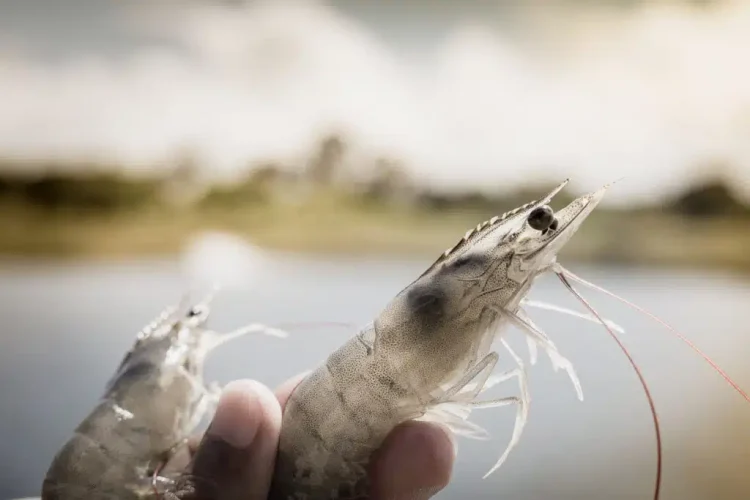Combatting shrimp losses naturally
Worldwide shrimp farming is severely affected by Early Mortality Syndrome (EMS), resulting in billions of dollars in losses as estimated by Global Aquaculture Alliance. Phytogenic additives present a natural, effective solution to improve shrimp health and resilience and mitigate the effects of EMS, offering a sustainable approach for the future of aquaculture.
Small pathogens, big threats
Early Mortality Syndrome (EMS), also known as Acute Hepatopancreatic Necrosis Disease (AHPND), has severely impacted shrimp farming worldwide. Since its first appearance in China in 2009, production in the affected areas has fallen by 60 % resulting in financial losses of around 43 billion US dollars worldwide. The disease, caused by the bacterium Vibrio parahaemolyticus, produces toxins that damage the shrimp’s hepatopancreas and lead to a high mortality rate. Species such as Litopenaeus vannamei and Penaeus monodon are particularly at risk. In affected ponds, shrimp can die within weeks, with survival rates plummeting to zero. EMS spreads rapidly in warm marine environments and is triggered by toxins (PirAvp and PirBvp) produced by the bacteria. Environmental factors like fluctuating water temperatures, poor water quality, and overcrowding make shrimp more vulnerable to this deadly disease. Even surviving shrimp suffer, as EMS weakens their immune systems, leaving them prone to other infections. This not only results in the loss of stock but also causes significant financial hardships and market disruptions for shrimp farmers worldwide.
Phytogenics additives: a promising approach
As shrimp farmers battle the devastating effects of EMS, phytogenic additives—natural compounds derived from herbs, spices and plants—emerge as a beacon of hope. These additives improve shrimp health by boosting immune function, supporting gut health and promoting overall resilience. Among these solutions, Anta®Ox Aqua has demonstrated significant potential. In a commercial trial with nine earthen ponds stocked with Pacific white shrimp, the shrimp group receiving Anta®Ox Aqua showed a significant decrease in Vibrio counts in the hepatopancreas compared to the control group, even without being challenged with Vibrio parahaemolyticus. The integrity of the hepatopancreas in the Anta®Ox Aqua group remained normal, whereas the control group exhibited a higher percentage of necrotic tubule epithelium (Figure 1). This innovative, natural approach offers shrimp farmers an effective way to improve both health and profitability.


Anta®Ox Aqua protects the hepatopancreas health and integrity of shrimp under stressful conditions

Anta®Ox Aqua: New opportunities for sustainable shrimp farming
As EMS continues to threaten shrimp farming, innovative solutions like Anta®Ox Aqua play a critical role in supporting farmers. By improving shrimp health and resilience, this phytogenic feed additive reduces the risk of disease outbreaks, increases production efficiency and promotes sustainability in aquaculture. Bridging the gap between profitability and environmental stewardship, this innovative approach helps shrimp farmers secure their livelihoods while contributing to a more sustainable aquaculture industry




















